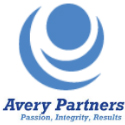It is important to keep in mind what you are trying to accomplish when you are actually sitting down to start resume writing. Many people mistakenly think that a resume should include virtually anything that is of relevance the job positions, plus a lot of just interesting stuff about themselves. Resume writing, in fact, is a very specific type of writing that strives to provide specific, relevant information to the employer about the candidate’s skills, knowledge and abilities that apply directly to the position.
In order to keep resume writing focused and direct, a good idea is to start with some general categories. These should include skills, experience, education and extracurricular specialties that directly related to the job posting or position. Make a list under each one of these headings of points that you think would help the employer reading the resume understand why you should get an interview. Remember when resume writing that it is not the resume that will get you the job, it is the resume that will get you the interview. The interview will then allow you to expand on the information and provide the employer with all the additional information.
Remember that when designing the layout of your resume it should look clean, crisp and business like. Resume writing is not the time to use flowery or flowing fonts or graphics, stick to text type fonts that are easy to read and portrait a professional. Always, when resume writing, keep your information in chronological order from most recent achievements, education and work through to past experiences. Don’t include everything, just the information that is relevant to the specific position you are interested in.
In the education section clearly indicate the degree earned the name of the institute and the year the degree was completed. When resume writing under the work experience section include the years worked, name of the company, town or location of the company or employment, title or position held and a few very brief statements about the specific duties and responsibilities. Avoid using any type of jargon, slang or job specific acronyms that may not be obviously understandable to someone outside of the profession.
Lastly be sure to add any additional relevant certifications or experience that may not fit under either the education or experience headings. Again, it must be important to the job or the requirements listed on the job posting or advertisement. Some resume writing experts also recommend an objective statement for the resume, but this will need to be customized and changed for each individual job application and should never be just a blanket type statement.

 Jeff Moore
Jeff Moore  Posted in
Posted in  Tags:
Tags: 



